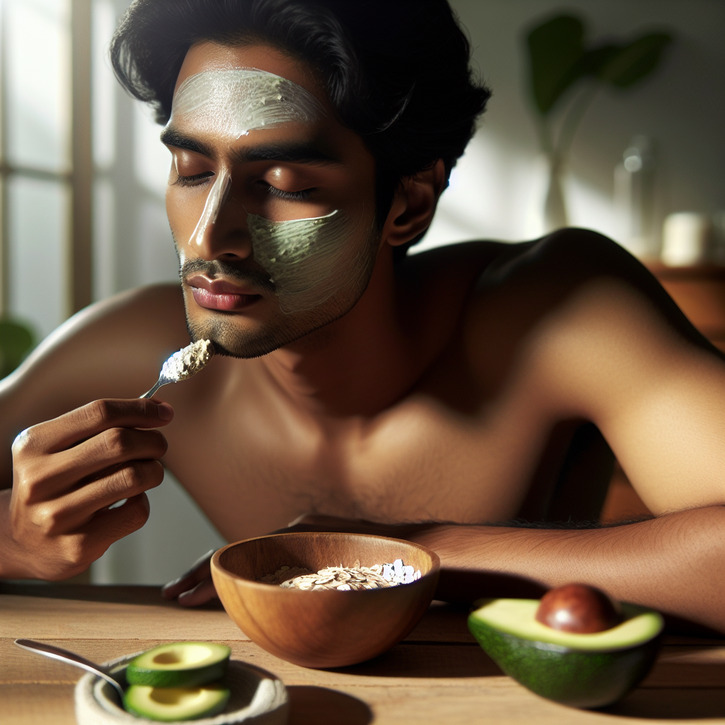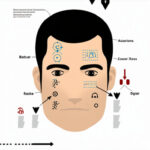How to Treat Dry Skin and Prevent Hair Loss Naturally

A Fresh Look at Dry Skin Hair Loss
Ever notice flaky, tight skin and thinning hair, and wonder if there's more to it than just bad hair days? Dry skin hair loss is one of those pesky issues that bridges the gap between dermatology and hair care, challenging many of us in unexpected ways. In this chat, we’re diving into natural ways to tackle the problem—think holistic fixes that nourish both your skin and your hair. We’re talking about understanding the roots of the issue, exploring symptoms, and getting into tried-and-true remedies like natural oils, herbal boosts, and dietary tweaks. Trust me, getting a handle on what’s really going on is the first step to reclaiming your confidence.
If you’re dealing with dry skin hair loss, you might notice your scalp feeling parched, a bit itchy, or your hair just looking brittle and weak. These aren’t just cosmetic concerns; they can really impact your day-to-day vibe. The cool thing about natural treatments is that they aim at the root problem rather than just masking the symptoms. When you choose a holistic approach, you’re working towards long-lasting health, and you're steering clear of potential side effects that come with too many synthetic products. Throughout this discussion, we’re spotlighting remedies that have withstood the test of time—backed by both expert advice and real-life success.
In our rundown of holistic solutions, we blend the best of old-school wisdom with modern science. Whether it’s lush natural oils that moisturize and encourage hair growth or dietary tweaks that boost your body’s inner strength, these strategies work hand in hand. No matter if your issues stem from hormonal changes or environmental stressors, we’ve got some straightforward, everyday methods to put up a good fight. It’s all about turning your daily habits into your best defense for skin and hair health.
Getting to the Bottom of Dry Skin Hair Loss
Dry skin hair loss can come from just about anywhere, so figuring out the underlying causes is key. Hormonal shifts, like during menopause or after other big changes, might leave your skin drier and your hair thinning out. Add in the assault from environmental stress—think harsh chemicals, polluted air, or extreme weather—and you have a recipe for disruption. By pinpointing these triggers, you can fine-tune your routine to bring your body back into balance.
On top of hormonal issues, everyday environmental factors are big players too. Constant UV exposure, hard water, and pollutants aren’t doing your skin or hair any favors. It’s no wonder natural remedies that work to restore and protect have become a go-to solution. Many find that simply cutting back on aggressive styling or reducing time spent in harsh conditions can make a real difference in easing the symptoms of dry skin hair loss. Once you understand these triggers, you’re in a perfect spot to adopt a more focused and holistic approach.
And let’s not forget about nutrition. Missing out on essential nutrients can leave your skin parched and your hair frail. Lack of vitamins, minerals, and those all-important fatty acids has a way of ramping up dryness and hair loss. Building a diet that’s rich in antioxidants, vitamins, and minerals can be a game changer. Feeding your body right not only gives your skin and hair the boost they need but also empowers you to take charge of your long-term wellbeing.
Top Trichologist: Do This To Your Scalp To Regrow A Full Head Of Hair

Completely natural and dirt cheap way that makes it possible for you to finally regrow all your hair back.
Learn moreNaturally Nurturing Dry Skin Hair Loss at Home
One of the best parts of going natural is that you’re in the driver’s seat about what goes on your body. Kick your routine up a notch with sumptuous natural oils like coconut, argan, and jojoba. These oils work wonders by locking in moisture, strengthening hair, and offering those crucial fatty acids that support overall hair health. Whether you’re pre-washing your hair, using them as a leave-in treatment, or mixing up a DIY mask, these remedies can help restore your hair’s shine and resilience.
Herbal and plant remedies also deserve a shout-out. Essential oils like rosemary, lavender, and peppermint have been known to boost blood flow, giving your hair a welcome lift. Just a few drops in your shampoo or mixed into a carrier oil can go a long way. Plus, many folks swear by herbal teas and extracts that take care of inflammation from the inside out, easing dry skin hair loss naturally. Stick with these routines, and you might just notice a steadily growing improvement over time.
DIY hair masks and skin treatments are all the rage these days, thanks to their effectiveness and ease of use. Whipping up a mix with ingredients like honey, avocado, and egg dishes out a nutrient-packed punch for your skin and hair. These masks work to lock in hydration, restore moisture, and fortify hair right from the roots—all without any harsh chemicals. With a bit of consistency, a little kitchen experiment might just transform your hair’s texture and your skin’s suppleness.
Fueling Your Body: Diet and Nutrition to Beat Dry Skin Hair Loss
Let’s get one thing straight—what you eat plays a huge role in managing dry skin hair loss. Vitamins and minerals like A, C, E, D, and a solid B-complex are absolutely critical for keeping both your hair nourished and your skin hydrated. Take Vitamin E, for example: it’s a champion for boosting circulation and offers antioxidant protection when you’re up against dry, flaky conditions. Many natural approaches zero in on loading your body with these nutrients through whole foods, helping kickstart repairs and rejuvenation from the inside out.
Think about adding berries, leafy greens, oily fish, and nuts to your daily menu. These foods naturally combat dryness and even help slow down hair loss. Omega-3 fatty acids from fish or flaxseeds are amazing for hydrating your scalp and soothing inflammation. A few simple tweaks in what sits on your plate can have a ripple effect on both your appearance and how you feel overall.
Don’t underestimate the power of an anti-inflammatory diet either. Inflammation can be a silent driver behind dry skin hair loss, so focusing on foods like turmeric, ginger, and green leafy veggies can ease that internal stress. Not only do these ingredients jazz up your meals, but they also work hard to keep your skin and hair in check by combating internal inflammation. It’s a natural, empowering way to support your body’s well-being in the long run.
Why The Ancient Samurai Warriors Never Lost Their Hair…

guaranteed to work for any men or women out there...
Watch free special videoEveryday Lifestyle Tweaks for Better Skin and Hair
Beyond what you put on and in your body, lifestyle choices are huge when it comes to managing dry skin hair loss. Staying well-hydrated is fundamental. Drinking plenty of water each day can work wonders by keeping your skin and hair cells moisturized and countering dryness. Plus, being properly hydrated really helps with circulation, ensuring your scalp and skin get all the nutrients they need. Combine that with a balanced diet, and you’ve got a solid foundation for a naturally effective treatment plan.
Let’s also talk stress—it’s a real culprit here. High stress levels can make everything worse, from dry skin to extra hair fallout. But don’t worry, there are plenty of stress-busting techniques out there. Whether it’s meditating, practicing yoga, or simply taking a few deep breaths, finding ways to unwind can seriously relieve the strain on your skin and hair. Regular exercise, too, does its part by enhancing blood flow and nourishing your body from within.
Even a brisk walk or a quick gym session can boost your endorphin levels, helping to balance hormonal fluctuations that might be contributing to the problem. When you mix proper hydration, smart eating, and regular exercise, you create a supportive environment that keeps your natural treatments working at their best. It’s all about creating that harmonious balance for healthier skin and hair.
Holistic Therapies to Complement Your Routine
Exploring holistic approaches can really broaden your horizons when it comes to managing dry skin hair loss naturally. Naturopathic treatments, for example, tap into natural substances that work in sync with your body’s own healing abilities. Whether it’s using botanical extracts, homeopathy, or mineral supplements, these therapies are geared towards revitalizing your skin and hair from the inside out. This personalized, proactive approach is ideal for anyone leaning towards natural solutions that come backed by seasoned expertise.
Another nifty trick is regular scalp massages, which can jump-start circulation and help deliver vital nutrients right where you need them. Some people even combine massage with acupuncture—an age-old practice that targets specific energy points to rebalance your body. Blending Eastern medicine insights with modern ideas on circulation and stress relief offers a full-circle approach to caring for your skin and hair.
Smart Prevention and Ongoing Maintenance
As they say, prevention is better than cure—and that’s especially true when it comes to dry skin hair loss. Setting up a daily skincare and haircare routine can go a long way in shielding your skin and protecting your hair. Think gentle cleansers, natural conditioners, and moisture-rich treatments that work together to fortify your skin’s barrier and encourage healthy hair growth. Keeping things natural by avoiding harsh chemicals means you’re not adding extra stress to an already delicate balance.
Watch Your Hair Come Back FASTER Than You EVER Dreamed Possible

WITHOUT Expensive Medications, Lasers, or Painful Surgeries!
Watch nowWhenever you’re picking products, lean toward those with recognizable, natural ingredients. A little label-reading and researching brands committed to sustainability can help you build a routine that really fits your lifestyle. Thanks to the growing market, you can now find plenty of products specifically formulated for dry skin hair loss, with soothing ingredients like aloe vera, tea tree oil, and shea butter. Mixing these store-bought treasures with your own homemade remedies can set you up with a prevention plan that works as hard as you do.
Finally, remember that long-term lifestyle shifts can make a world of difference. Besides your daily routine, it’s worth periodically checking in on your overall habits to make sure you’re keeping stress in check and staying hydrated. Over time, all these adjustments add up—reducing the frequency of dry skin and hair issues, and letting you feel empowered and resilient against future challenges.
Your Questions Answered: Expert Insights on Dry Skin Hair Loss
Q: Is dry skin hair loss only caused by external factors?
A: Not at all. Sure, pollution and UV rays do their part, but hormonal imbalances, nutritional shortfalls, and stress are major contributors too. The experts agree: a well-rounded, multi-faceted approach is key to tackling dry skin hair loss effectively. Your personal health history and lifestyle choices are important pieces of the puzzle.
Q: Can natural treatments really reverse dry skin hair loss?
A: Definitely—as long as you embrace a comprehensive, holistic approach. Many natural remedies not only fade the symptoms but also address the underlying issues, leading to lasting improvements. The secret sauce is consistency; when diet, lifestyle, and topical treatments join forces, the results speak for themselves.
Q: What practical tips do experts have for managing dry skin hair loss?
A: Experts recommend mixing in natural oils, regular scalp masses, and a nutrient-packed diet into your daily routine. Don’t forget stress management and keeping up with your hydration. Every person’s journey is unique, but the gentle power of nature usually holds a lot of promise.
Wrapping up our chat on dry skin hair loss, it’s clear that listening to your body is half the battle. By blending nutritional strategies, natural topicals, and holistic lifestyle tweaks, you can carve out a balanced routine that truly works for you. With over a decade of experience in managing hair and skin challenges, I can confidently say that staying natural is not just a trend—it’s a path to lasting, authentic improvements.






